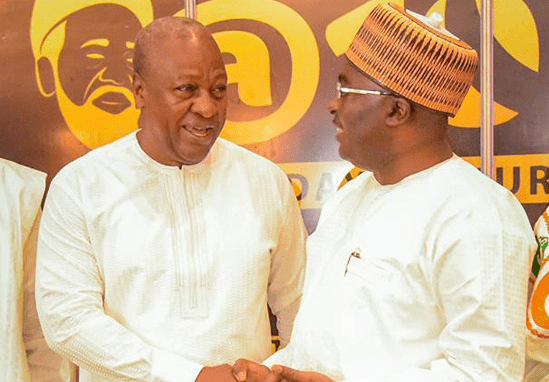Elections serve as a cornerstone of democracy, providing citizens with the opportunity to exercise their fundamental right to choose their representatives.
However, the electoral process can be marred by inflammatory rhetoric and misleading information disseminated by political parties and media practitioners. These stakeholders must recognize the impact of their words and actions, as they can shape public opinion and influence the outcome of elections.
To facilitate discussions among stakeholders on issues that could impact national security ahead of the December 7 election, the National Peace Council organized a workshop in Kumasi with the assistance of the British Council and the Star Ghana Foundation.
The Peace Council raised concerns about using insults and tribal statements to score political points. Words possess immense power. They can inspire, unite, and bring about positive change. Conversely, they can provoke division, incite violence, and undermine democratic values.
Political parties and media practitioners are advised to exercise caution and recognize the potential consequences of their words during election campaigns. Utterances that perpetuate hate speech, promote misinformation or spread falsehoods can create an atmosphere of hostility, erode trust in democratic processes, and threaten social cohesion.
In light of this, the National Peace Council has advised political parties, their delegates, and media professionals to exercise caution when speaking ahead of the general election on December 7.
“We have diverse views, yet we need to express them in a much more peaceful way so that we understand ourselves and continue to live as Ghanaians. Particularly again with journalists; they should use language that will bring peace not speech that will bring hate”.
Dr. Harriet Takyi, Member of the Peace Council
Ensuring the Integrity of Elections
Before the official start of the election season, the Council requested that political parties, their representatives, supporters, and the media refrain from using languages that could jeopardize national security.
Political parties bear the responsibility of engaging in healthy political discourse that fosters informed decision-making among voters. They should strive to debate policy issues, articulate their visions, and offer constructive criticism of opponents’ positions.
By maintaining civility and respect, political parties can set an example for the electorate, encouraging thoughtful discussions and promoting a culture of tolerance and inclusivity.
Media practitioners, as the gatekeepers of information, play a pivotal role in shaping public opinion. They must report the news accurately, fact-check claims made by political parties, and provide unbiased analysis. Sensationalism and the dissemination of unverified or misleading information can lead to a distortion of public perception.
Also, media organizations must prioritize ethical reporting, objective journalism, and a commitment to the truth, ensuring that the public is well-informed and empowered to make informed choices.
Mindful utterances by political actors and media practitioners are not merely matters of rhetoric, they directly impact the integrity of elections. Inflammatory speech can fuel tensions, spark violence, and undermine the credibility of the electoral process.
Similarly, the spread of misinformation and disinformation can erode public trust in democratic institutions, creating a fertile ground for manipulation and voter apathy. Consequently, the legitimacy of election results may be called into question, leading to potential social unrest and political instability.
To ensure the integrity of elections, political actors and media practitioners are advised to adopt and adhere to ethical codes of conduct. Political parties must encourage their members to engage in respectful dialogue, focusing on issues rather than personal attacks.
Media organizations should invest in fact-checking mechanisms, promote transparency, and hold themselves accountable for accurate reporting.
Additionally, electoral authorities should monitor and address instances of hate speech, misinformation, and disinformation, ensuring a level playing field for all candidates.
By fostering healthy political discourse, promoting accurate information, and prioritizing ethical standards, these stakeholders can contribute to the strengthening of democratic values and the preservation of social harmony.
The collective responsibility lies with political parties, media practitioners, and the electorate to demand and uphold the highest standards of integrity, transparency, and accountability in the country’s democratic systems.
READ ALSO: Needs to Legalize Organ Donations in Ghana




















